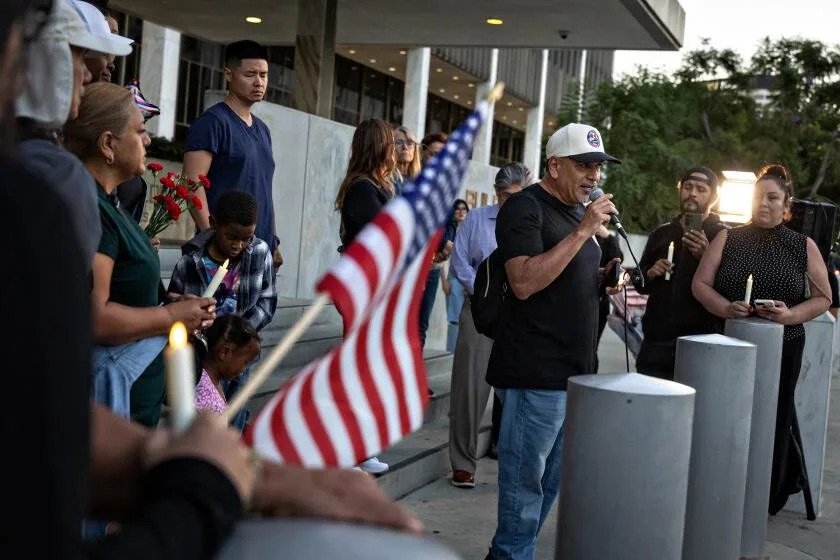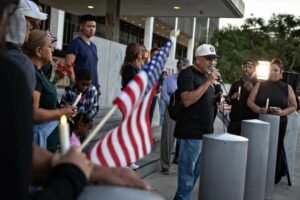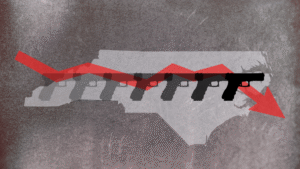Durham, NC — On September 10, 2025, video from Huntington Beach, California, lit up social media. Dozens of demonstrators waving American flags and shouting “White man fight back!” filled the streets, a scene civil rights organizations quickly labeled a neo-Nazi protest. It came just days after the assassination of conservative activist Charlie Kirk in Utah, and the response revealed how quickly grief and anger could be weaponized into political theater.
That eruption on the Pacific Coast might have seemed distant. But here in North Carolina, the fallout has been immediate, sweeping through workplaces, schools, and even Sunday shopping trips. The story of Kirk’s death — and the rage unleashed in its wake — has become both national and local, echoing from Huntington Beach to Charlotte, Greensboro, and Durham.
Huntington Beach: A Flashpoint for Extremism
Huntington Beach, often known as “Surf City USA,” has long been a magnet for far-right activity. The city drew attention during the COVID-19 pandemic as a hub for anti-mask protests, and civil rights groups like the Anti-Defamation League (ADL) and Southern Poverty Law Center (SPLC) have documented its role as a gathering point for extremist organizations.
The September 10 demonstration was another flashpoint. Videos posted by outlets like Courier Newsroom and reposted thousands of times showed young men carrying banners, chanting slogans rooted in white supremacist ideology, and framing Kirk’s death as a call to arms.
“This was not mourning — this was mobilization,” said a spokesperson for the ADL. “Extremists seized the opportunity to spread their message of division.”
North Carolina: Fear Spreads from Offices to Classrooms
The anger visible in California has not stayed there. In North Carolina, Kirk’s death has become a dividing line in workplaces and communities.
In Charlotte, the Carolina Panthers’ head of communications was dismissed after comments surfaced on social media regarding Kirk. League insiders described the move as a response to “public backlash,” but for many, it was a warning shot: words carry consequences.
Teachers across the state have faced similar pressure. One of the most high-profile cases involved Kristen Eve, a Department of Defense Education Activity (DoDEA) teacher at Fort Bragg. She was terminated after online posts celebrating Kirk’s assassination went viral. Her firing, amplified by far-right influencers, became a lightning rod for debate over free speech and accountability.
“It’s like walking on eggshells,” said a Greensboro high school English teacher, requesting anonymity. “You teach your students about the First Amendment, but you learn the hard way that it doesn’t always protect you from losing your job.”
At Durham’s Southpoint mall, everyday shoppers expressed unease.
“I don’t support Kirk, but I don’t think people should lose their livelihoods for speaking out,” said Melissa H., a Chapel Hill mother. “The fear is real. The right is furious, and they’re going after people who don’t toe the line,” added Aaron R., a Duke graduate student.
Flames Fanned by Far-Right Activists
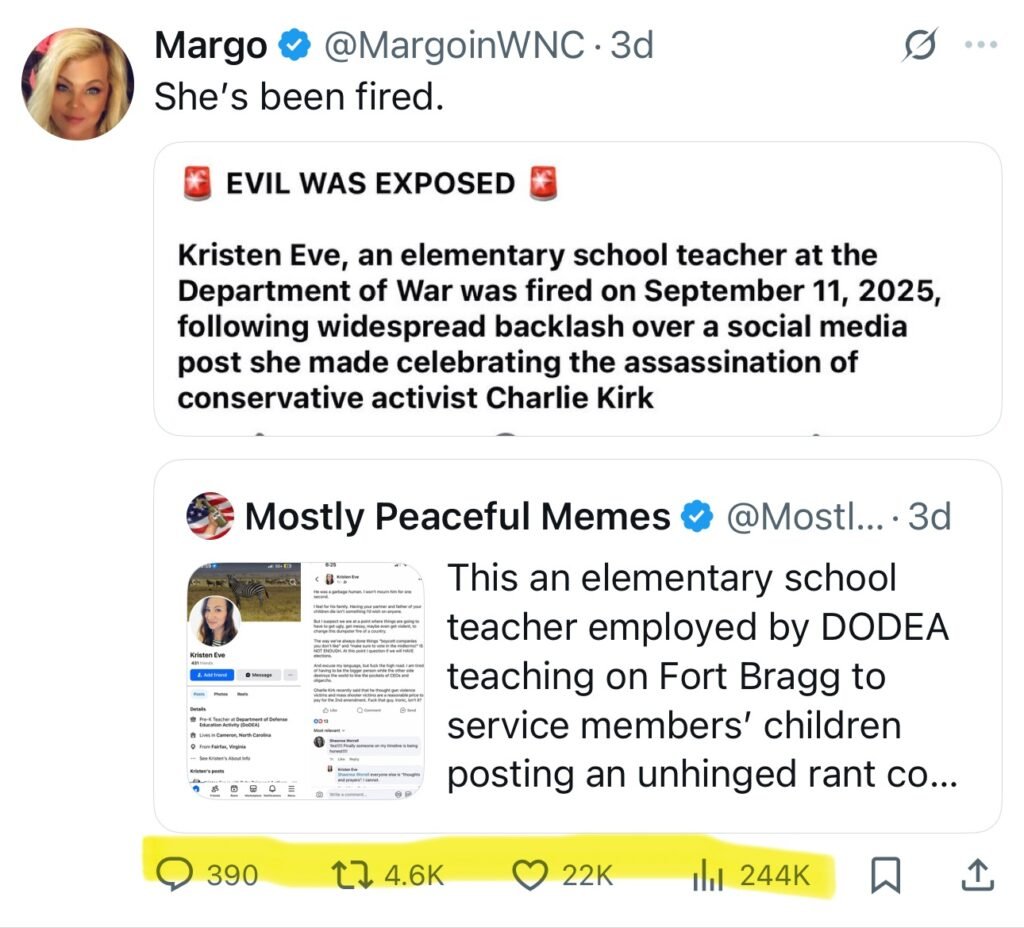
Driving much of the fury in North Carolina is Margo, a former NC District GOP Secretary with more than 70,000 Twitter followers. Known for blending sharp insults with political rhetoric, Margo has used Kirk’s death to galvanize her audience.
Her tweets — attacking Governor Roy Cooper as a “monster,” sharing celebratory posts about firings, and reposting memes framing Kirk as a martyr — routinely reach hundreds of thousands of views. But her influence extends beyond the screen.
According to sources familiar with her activities, Margo has been phone banking, urging supporters to pressure employers to fire workers who post negatively about Kirk. Teachers, NFL staff, and even local government employees have described a climate where one viral tweet can lead to professional ruin.
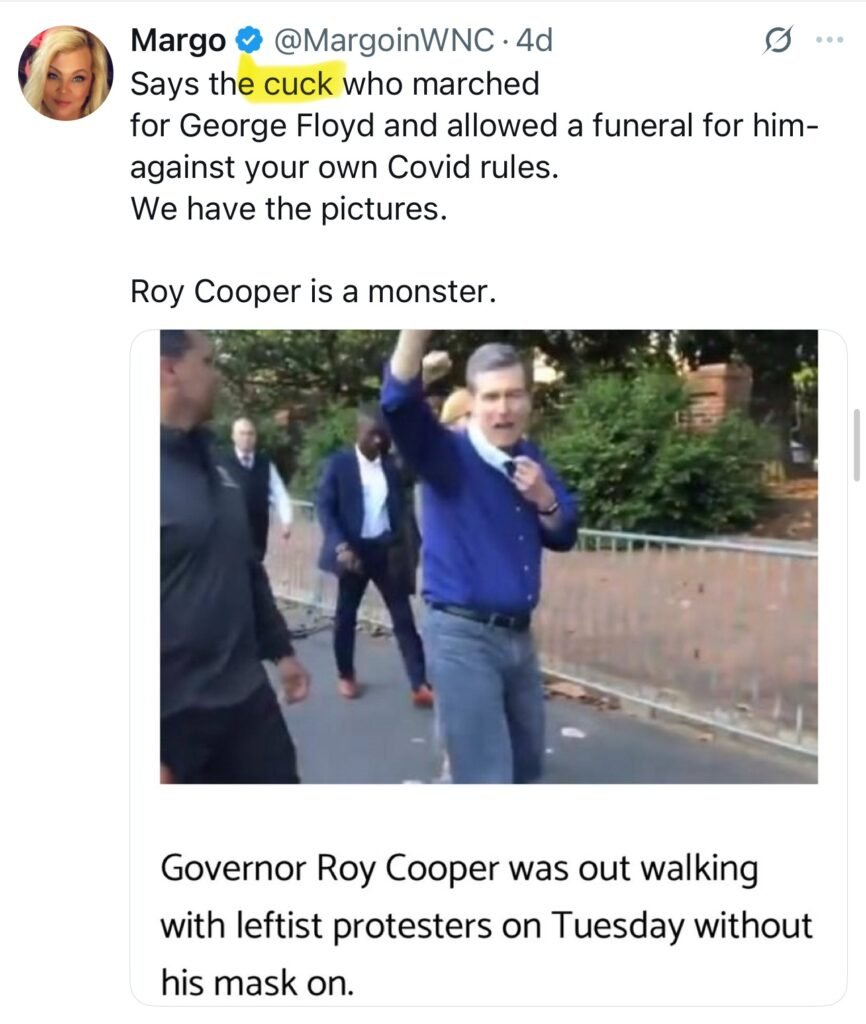
“She’s weaponizing outrage,” said Dr. Lisa Hernandez, a Duke University professor of media studies. “It’s not a government crackdown. It’s organized retaliation from online mobs, driven by activists with large platforms.”
The Bigger Picture: A State on Edge
Civil rights groups say the combined effect of extremist protests in California and retaliation campaigns in North Carolina is dangerous. “This is not just grief — it’s grievance turned into a weapon,” said an NAACP representative in Durham.
Residents sense the shift, too. At Southpoint’s Barnes & Noble café, retiree Barbara L. put it plainly: “When you see young men chanting hate in California, and then you see teachers here losing jobs, you wonder: how safe are we, really? For our kids, our schools, our churches?”
Dr. Keith Williams, a political scientist at NC State, warns that the escalation is part of a larger national trend. “The mainstreaming of rage is blurring the line between political speech and personal retribution. It makes everyone more cautious — and more divided.”
Why This Matters in Durham
At The Bull City Citizen, we see this story as more than headlines from California or Washington. It’s about how national events filter down into daily life in Durham, Charlotte, and Greensboro — shaping conversations at the mall, pressuring teachers in classrooms, and influencing decisions in corporate offices.
The Huntington Beach protest shows the visual force of extremist anger. North Carolina shows the personal cost, as neighbors, educators, and professionals navigate fear of retaliation. Both are parts of the same story: a nation grappling with how grief, rage, and politics collide.
Support Grassroots Journalism
In a time of polarization and fear, independent news matters more than ever. The Bull City Citizen is Durham’s nonprofit newspaper, built to serve our community with clarity, fairness, and purpose. Support our mission today by subscribing and sharing our reporting.

